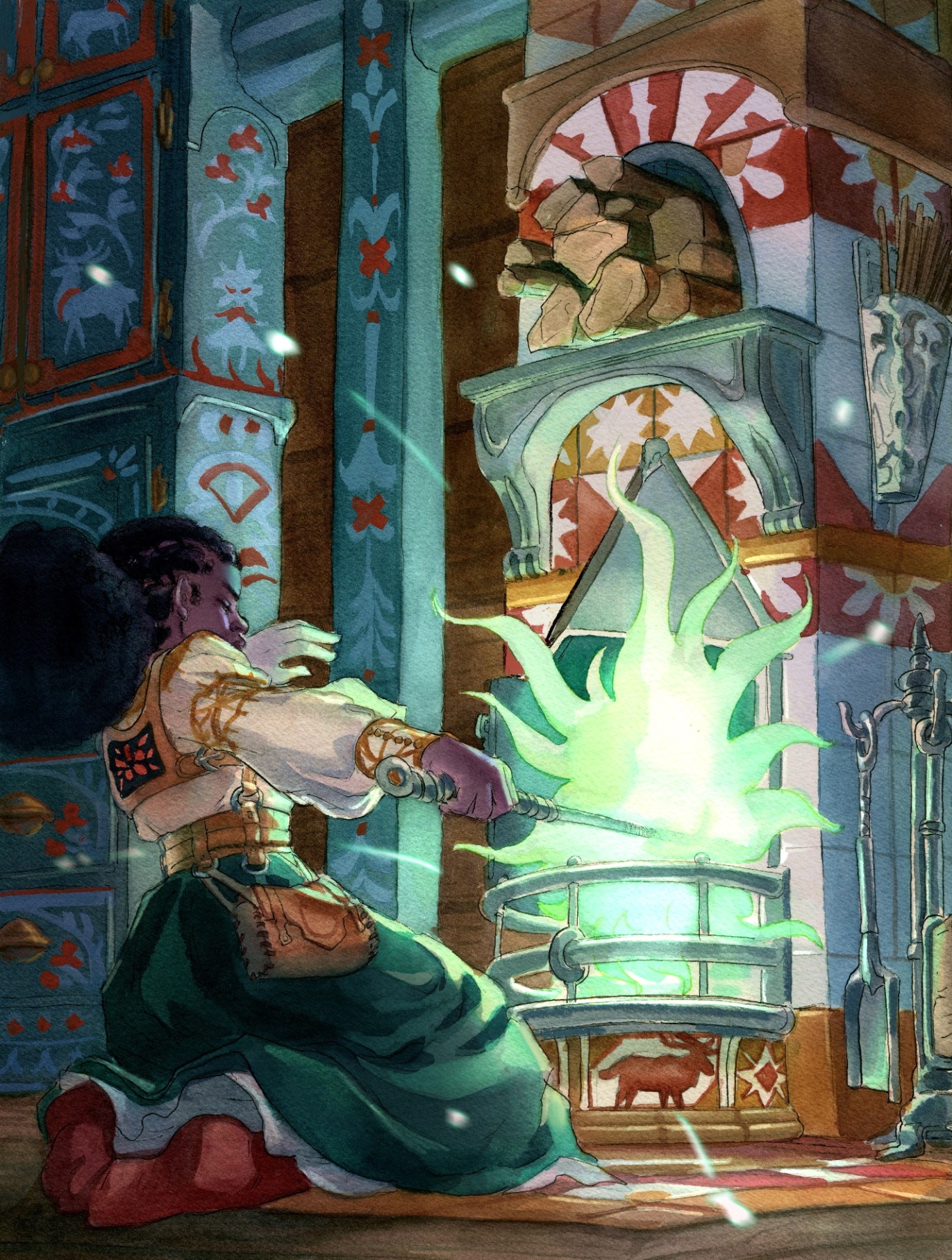Chapter 68:
Hope Chest
Moth busied herself in the kitchen, preparing a dinner for everyone in the house, though it would be several hours before Lt. Grotte was finished with work and she couldn’t be sure when Feldar would return from the errand she had sent him on.
She made some bread dough and set it to rise in a warm corner, and scrounged through the cupboards. Finding jarred salmon and a bag of potatoes, Moth began to prepare salmon soup.
Outside, Nehem was tending to Lt. Grotte’s potager, and Moth could hear the snow melting and dripping off the eaves, and as the day went on and a spring sun glared persistently, the sound of the droplets became a steady stream.
It was strange to use her fogged hand again. She flexed and curled her hand, gripping a knife and peeling potatoes, something she had not done since she was fourteen – she had to, through the last decade of her life, figure out ways around her hand, to use it as a blunt instrument, but now it was hers again. It did not belong to the fog anymore.
She was unpracticed using two hands, and kept defaulting back into old habits, but would suddenly remember she could use it again and feel a massive wave of hope for Hiren, for herself, and would start crying onto the potatoes again.
Recovering herself, Moth set a pot of water onto the stove and bent to stoke the fire, adding some sticks of wood. When she stood up, she found water dripping into her pot.
